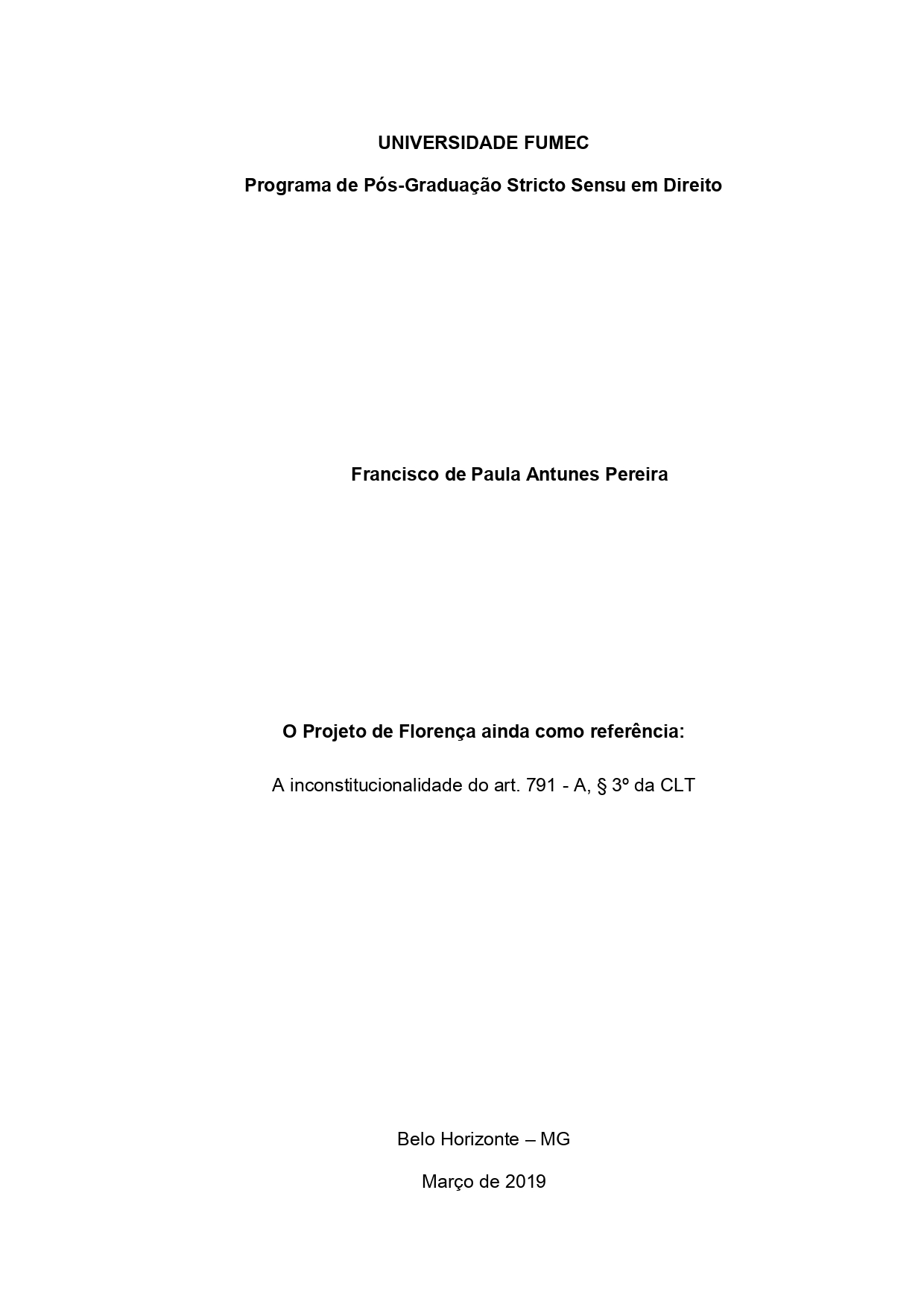O Projeto de Florença ainda como referência: discussões sobre a (in)constitucionalidade do art. 791 - A, § 3º da CLT

Visualizar/
Data
2019Autor
Pereira, Francisco de Paula Antunes
xmlui.mirage2.itemSummaryView.MetaData
Mostrar registro completoResumo
A presente pesquisa visa analisar o art. 791-A, § 3º da CLT, dispositivo que permite
ao juízo fixar honorários de sucumbência recíproca e veda a compensação entre os
honorários advocatícios. O estudo foi realizado por meio de pesquisa bibliográfica
contrapondo o Direito Constitucional com o Direito do Trabalho e Processual do
Trabalho. O método de pesquisa é hipotético-dedutivo. Tal mandamento é analisado
à luz do princípio constitucional de acesso à justiça. Pretende-se compreender a
validade do texto legal com fulcro nos ensinamentos de Mauro Cappelletti e Bryan
Garth, realizados no Projeto de Florença. Analisa-se a inconstitucionalidade do
dispositivo com base na concepção tradicional de acesso à justiça. É considerável a
contenda que permeia a doutrina sobre a constitucionalidade do novel texto da CLT,
motivo que justifica o convite ao leitor para refletir se a norma celetista está em
conformidade com o princípio garantidor de acesso à justiça à luz das Ondas
Renovatórias identificadas por Mauro Cappelletti e Bryan Garth. The present research aims to analyze the art. 791-A, § 3 of the CLT, a mechanism
that allows the court to determine reciprocal succumbing fees and prohibits
compensation among attorney's fees. The study was carried out through
bibliographical research opposing Constitutional Law with Labor Law and Labor
Procedural Law. The research method is hypothetical-deductive. Such a
commandment is analyzed in the light of the constitutional principle of access to
justice. It is intended to understand the validity of the legal text with fulcrum in the
teachings of Mauro Cappelletti and Bryan Garth, realized in the Project of Florence. It
analyzes the unconstitutionality of the device based on the traditional conception of
access to justice. The contention that permeates the doctrine on the constitutionality
of the CLT's novel text is considerable, and this justifies the invitation to the reader to
reflect whether the bargaining norm is in accordance with the guarantor principle of
access to justice in the light of the Renovation Waves identified by Mauro Cappelletti
and Bryan Garth.
